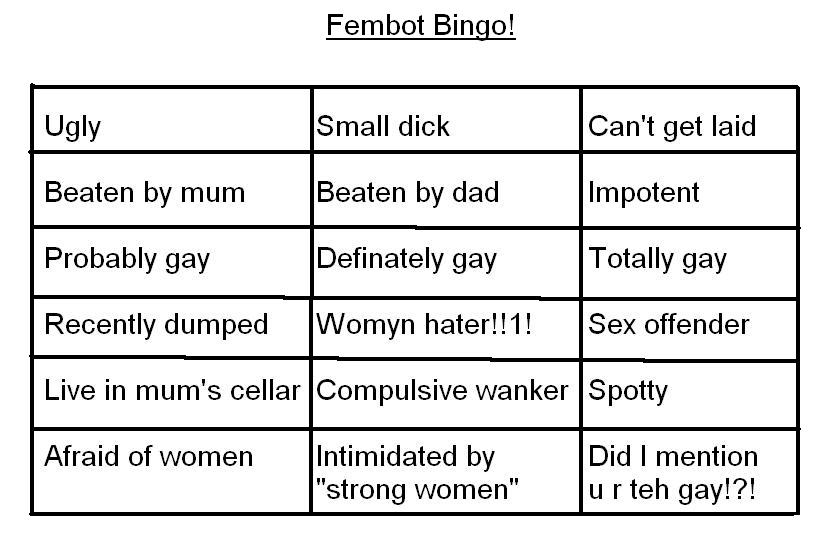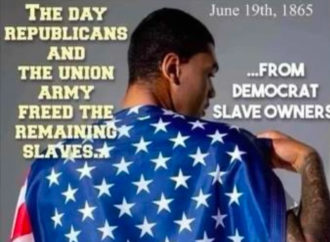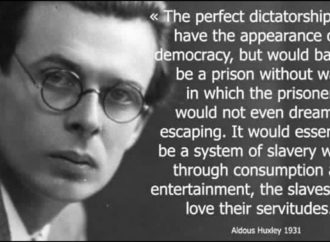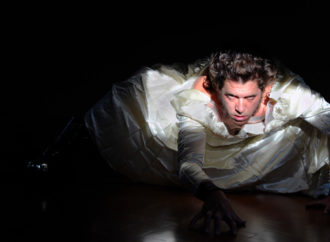Wake Forest Professor of Sociology challenges the long-held assumption that women are more vulnerable to the emotional rollercoaster of relationships.
Men Harmed by Relationships More than Women
Well of course they are! NO MA’AM has been trying to explain this to people for a few years now.
I’m not surprised. Once you let loose the false notion that “gender is a social construct” and embrace the view that there are innate differences between men and women, it becomes rather obvious that women are “designed” to be scrumptious to men. The purpose of this is for women, being the “weaker” sex who are often “burdened” by children, to be able to procure protection and resources from their male love interests, often to the negative net-benefit of the male. In other words, women are designed to create self-benefiting reactions from a man towards her, and men are designed to be reactive to these manipulations from the female. In nature, men are “supposed to be” more reactive than the female.
Agreed!
Well, I’m not sure I agree with that. “Greater emotional benefits” are more of a subjective opinion than a hard fact. In the same vein of thought regarding “benefits,” one might also say that a person who is 150lbs gets “greater alcoholic benefits” from drinking 12 beers than a 200lb person. Yeah, sure. They’ll have a bigger hang-over in the morning too! And what’s the benefit of that?
Agreed again! My goodness, I don’t think I’ve ever agreed with female academics and social scientists so much! In fact, many men find this out in marriage after the first baby arrives and intimacy with his wife begins escaping him more and more. A woman’s calling to care for her baby, as well as such intimate skin-on-skin touching from childcare such as breast-feeding, and, well just even holding the baby, often fulfill the majority of a woman’s emotional needs. Touching and being touched by other humans is key to one’s emotional wellbeing. Women also touch and hug other women at far greater rates than men do. For men who touch, if it is with other men they are presumed gay and are mocked, if it is platonicly touching a woman, they run the risks of being considered “creepy” and possibly harrassing, and if it is with children they are considered pedophiles and put under criminal suspicion. Something that is a social construct is the hysteria generated by a man’s touch. No kidding when he gets into an intimate relationship with a woman that he is overwhelmed by it – he may have gone without for months or even years without real human touch, whereas she may only go for a day or two without human touch.
Hmmm… ok. But who is sowing the seeds of this? She does not say. However, it has been my experience, both within intimate relationships and in relationships with women in general, that women’s favoured weapon during any “strain in the relationship” is to first, foremost, and always, attack a person’s identity and self-worth.
“He didn’t want to kiss me – He must be gay!”
“He didn’t behave like a servile worm and give me what I wanted – He hates women!”
“You’re such a loser.”
“Strain in a current romantic relationship may also be associated with poor emotional well-being because it threatens young men’s identity and feelings of self-worth, she says.”
“For young men, their romantic partners are often their primary source of intimacy – in contrast to young women who are more who are more likely to have close relationships with family and friends.”
“The researchers also found that men get greater emotional benefits from the positive aspects of an ongoing romantic relationship.”
“That means the harmful stress of a rocky relationship is more closely associated with men’s than women’s health.”
“Surprisingly, we found men are more reactive to the quality of ongoing relationships.”

Shaming language is far more the realm of women than men. A man gets pissed off and swears and shouts, and may even break something, and then he calms down after his outburst and returns to normal. But a woman scorned will make life hell for you for months afterwards by undermining your identity and self-worth. Haven’t you heard that “Hell Hath No Fury” line before? They weren’t talking about a woman’s ability to go Bruce Lee on people, you know.
In fact, other social scientists have found these differences to be stereotypical of male and female forms of aggression:
.
“Bullying styles are generally considered to fall under two categories, direct and indirect. Direct physical bullying is to, hit, shove, kick, trip, push, and pull. Direct verbal bullying can involve name-calling, insults, threatening to hurt the other. Indirect bullying, also known as social or relational aggression (Crick 1997) involves attacking the relationships of people and hurting the self-esteem. It is subtler and involves behaviours such as spreading nasty rumors, withholding friendships, ignoring, gossiping, or excluding a child from a small group of friends.
There is no doubt that stereotypically, males are more physical and direct in their bullying styles and females more manipulative and indirect (Olweus, 1997; Bjorkqvist, 1994; Crick & Grotpeter, 1995; Lagerspetz, Bjorkqvist & Peltonen, 1988). Boys in our Western culture are encouraged to be tough and competitive and as they maturate slower and develop social intelligence at a slower rate they will use physical aggression longer than girls (Lagerspetz, Bjorkqvist, & Peltonen, 1988; Bjorkqvist, Lagerspetz, & Kauliaien, 1992). However there is no reason to believe that females should be less hostile and less prone to get into conflicts than males (Burbank, 1987, in Bjorkqvist 1994; Crick & Grotpeter, 1995). As females are physically weaker, they develop early in life other bullying styles in order to achieve their goals. Indirect aggression in girls increases drastically at about the age of eleven years (Bjorkqvist, Lagerspetz and Kaukiainen, 1992) whereas physical aggression among boys decreases during late adolescence, to be replaced mainly by verbal, but also indirect aggression (Bjorkqvist 1994).
There is a growing body of research in gender differences of bullying and other adolescent aggressive behaviours. There are hundreds of studies dedicated to the topic, many placing the emphasis on boys or the forms of aggression, more salient to boys. Forms of aggression more salient to girls has received comparatively little attention (Crick, 1997; Crick & Grotpeter, 1995).”
Carrying on with the original article:
Well, sure women express emotional distress with depression. They are permitted to! Even when women are the clear destroyers of a relationship, such as by cheating on the boyfriend, all of her girlfriends and family are standing by to give her hugs and sympathy and tell her it ‘wasn’t her fault – he must have been a real bastard to make her resort to that!’ And of course, there are a host of men lining up to be her next victim, er, boyfriend, who will also be quick to excuse her behaviour in order to score points with her. She gets enormous amounts of attention by being depressed.
However, it is a little, how should we say, “unfair,” to surmise that men deal with distress not by depression, but with ‘substance problems.’ Yeah, ok, substance problems as the result of being seriously depressed maybe! And for the young man, rather than receiving the sympathy the woman receives, he will find that he is constantly derided for “not treating her well enough,” or that “he must’ve done something to deserve it!”
So, not only does he fail to receive any sympathy, but he also receives all the blame. Often times, entire groups of people, who should know better, will join in the “blame the man game.” (See the above reference to Sex Differences in Aggression).
To top it all off, society will call him a loser for showing his pain, and other females will find him decidedly unattractive for doing so.
It’s no small wonder, with no other place to turn, that he might try to find solace at the bottom of a bottle. One needs to only examine suicide rates by gender, which are several times higher for males than females, and rather than write it off as some male defect, actually begin to surmise that there are no shortages of depressed males of all ages who feel there is no suitable place for them to turn.
One could also rephrase this by saying that young men are treating love as a verb whereas young women are treating love as a noun – something which she gets from others. Who loves her is not as important as that she receives love from somebody. A man in love bestows it upon the object of his affection, namely, the one specific person whom he is enamoured with. Women… mmm… not so much giving… but a whole lot of receiving.
This is why Florence Nightingale comes to the following conclusion about women:
“Women have no sympathy… and my experience of women is almost as large as Europe. And it is so intimate too. Women crave for being loved, not for loving. They scream at you for sympathy all day long, they are incapable of giving you any in return for they cannot remember your affairs long enough to do so.” – Florence Nightingale
“While young men are more affected emotionally by the quality of their current relationships, young women are more affected by whether they are in a relationship or not, Simon says. So, young women are more likely to express depression when the relationship ends or benefit more by simply being in a relationship.”
“She also explains how men and women express emotional distress in different ways. ‘Women express emotional distress with depression while men express distress with substance problems,’ Simon says.”

Of course, emotions have a purpose beyond just making us feel good or bad. They also have a biological purpose.
The emotions associated with “love” have an active purpose in reproduction, which is the most primal desire that exists in all living things after basic survival. It is a powerful force indeed, and neither player is good or bad, but rather both play their part just as with all other living things.
I am a believer in the theory of Rotating Polyandry. In a nutshell, the theory is that a woman’s “love” is based on a mating cycle of approximately four years. This is about how much time is needed for a man and woman to meet, have copious amounts of passion-fueled sex until the woman gets pregnant, gives birth and nurses the child until it is a more or less self-sufficient being that can walk, talk and feed itself. Of course, during this time when she is pregnant and with an infant, is when the woman and child will be most vulnerable of all and it is during this time that a male is most needed by them.
Rotating-PolyandryAfter this mating cycle is finished, in order to maximize a woman’s chances of passing on her genes throughout the ages, rather than being disadvantaged by having all of her children sired by the same man – in case of genetic defects and such – Nature makes her fall out of love with the man after his usefulness during this period. She thusly discards him for the next male, and goes through the process all over again. (Q: What’s the definition of “confusion?” A: Father’s Day in a Matriarchy.)
Also supporting this theory is that a man’s love for a woman is deeper than her love is for him. There is no biological advantage to a man falling out of love with a woman – in fact, just the opposite, as the more he stays in love the longer he will protect and provide. It works on the same principle that parents have a deeper love for their children than the child has for its parents – because nature dictates that the child must leave one day and strike out on its own. It is therefore better that parents are far more “in love” with the child than the reverse.
This also plays into the phenomenon of Male Spikes vs. Female Rhythms, similar to the above described differences between male and female forms of aggression.
It is incorrect to say that “women are more emotional than men.” It is more accurate to say that women have more kinds of emotions that affect them than men, while men have fewer emotions, but the emotions they do have run deeper.
The biological purpose for women having more kinds of emotions has to do with their role as nurturers of small children – who communicate far more through emotions than through direct communication. But, the biological purpose for a man’s emotions to run deeper is to cause him to sacrifice for women and children – sometimes with his life.
Of course, these innate differences between men and women come from our biological imperatives passed on to us from being part of the Animal Kingdom. However, humans are not animals. In fact, when one stands back and looks at things in a “big picture” sort of way, the art of being human is to conquer or resist our animal-ness. The conquering of these animal impulses plays a large part in “why” the dreaded patriarchy has existed since the beginning of recorded history and thus, civilization itself – for that was when we stopped behaving as beasts, and started refining what it was to be human by suppressing our natures for a greater purpose.
But, what do I know? I’m not even a social “scientist.”
—————————————————————————–
Related:
Bonecrcker #47 – Living in La-La-Land

































1 Comment
Thomas Pollock
April 23, 2021, 5:52 amNext they will be telling us that antelopes are more harmed by their relationships with lions.
"What! Postumus, are
you, you who once had your wits, taking to yourself
a wife? Tell me what Tisiphone, what snakes are
driving you mad? Can you submit to a she-tyrant
when there is so much rope to be had, so many dizzy
heights from windows standing open, and when the
Aemilian bridge offers itself for your use?"
Juvenal, circa 115 A.D., Satire VI
The "Masculine Principle" leads to independence and the "Feminine Principle" to unity. From
this flows the fundamental nature of men to resist relationships and for women to start them.
"The history of woman is the history of the worst form of tyranny the world has ever known; the tyranny of the weak over the strong. It is the only tyranny that lasts."
Oscar Wilde, "A woman of No Importance", 1893.
"What women most desire is—sovereignty.
Fain would each wife obtain complete command
Over her husband, house, and wealth and land.
Single or wed, your sex aspire to sway;
They to rule all, while men, like slaves obey."
At this there was no widow, wife or maid,
Who disagreed with what the knight had said.
Even the queen, with blushing cheeks, confessed,
That he had found what women love the best."
"The Wife of Bath’s Tale", by Geoffrey Chaucer
""Policy for Woman is eternally the conquest of the Man …
This secret and fundamental war of the sexes has gone on ever since
there were sexes, and will continue — silent, bitter, unforgiving, pitiless —
while they continue …
and with a still more uncanny potency than in the other History that
takes place between man and man …"
Spengler, Oswald, "The Decline of the West".
REPLY